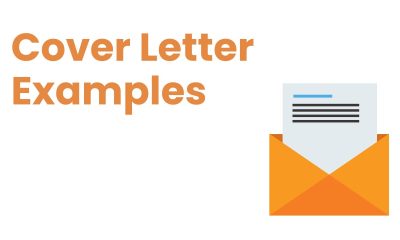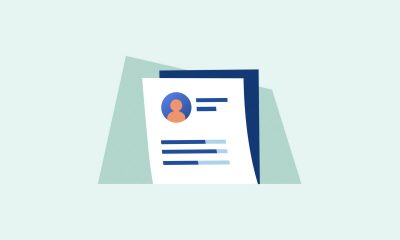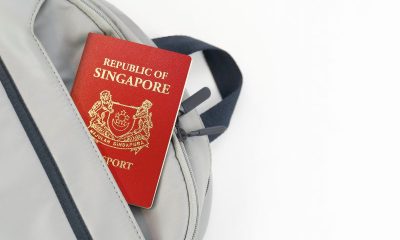Travel
Here Are The Do’s And Don’ts During A Visa Interview

A successful interview outcome can have a stronger impact on the decision to grant a visa. The following are some of the most common interviewing mistakes.
Don’ts
- Not Well Prepared for the Interview
Being prepared for an interview can help you perform better in the interview. Prior research and preparation for frequently asked questions and appropriate responses will be beneficial during the interview.
- Avoid making eye contact
Always keep in mind that there is a distinction between making eye contact and staring. Staring without blinking is not a smart method to demonstrate confidence; it can make the other person uneasy. Make eye contact, but don’t forget to blink.
- Offer your document unless asked
The Visa Officer, in all probability, will not ask for any documents. Please do not offer to show it to them (until and unless they specifically ask to see something)
- Failure to Provide Complete and True Information
It is crucial that you supply complete and accurate information. Incomplete or incorrect information can lead to unnecessary delays. False information can jeopardize your chance to qualify for a US visa in the future. It could also lead to a lot of frustration and legal action against you.
All required papers must be carried, including complete and authentic information. Read all of the prerequisites and gather all of the required documentation. Keeping your documents organized might also help you create a good impression on the consulate officer.
- Providing Insufficient Documentation
Attending the interview without the necessary documentation to support the accuracy of the information provided on the visa application form will significantly reduce your chances of obtaining a Visa. Inconsistency between what you provide in the documentation and what you say during the interview can work against you.
- Dispute with the Consulate Officer
Another reason for the visa interview to go wrong is arguing with the visa official during the interview. Increased tone of voice, poor approach to the visa official only demonstrates that you are a destructive individual who does not respect the authority that a representative of the diplomatic office possesses.
- Ineffective Communication/Speaking English with a Forced Accent
Poor communication is the most common cause of a negative outcome in your case. If you don’t speak English well, you should request a regional language interpreter. Do understand that the Visa Officer can easily differentiate between accents. Do not try to put on forced American Accents. Be natural and clear in every communication you make.
- Having Excessive Communication
Keep in mind that you are the one being interviewed, not the other way around. As a result, keep your communication brief and to the point. Only respond when asked to do so.
- Having a Nervous Appearance
Being self-assured can have a good impact. Especially during a visa interview, where a consular officer must rely on limited information offered by you. Their evaluation is highly influenced by how you reply to queries, your body language, and the sincerity with which you respond.
Avoid being nervous as there is no need. You have planned your international visit either to pursue studies abroad or to get better career opportunities. So there should not be any reason to get nervous or feel tensed. Try out some breathing exercises before you start your Interview to calm your nerves.
- Failure to Charge Appropriate Fee
The US consulate’s payment options are strict. Make sure you understand the process as well as the exact amount of the necessary cost. Most US consulates, for example, do not accept cash and prefer separate bank draughts for visa application and visa issue expenses. Consult an appropriate source for more information.
Tips for a Successful Visa Interview
If you are going to have a visa interview, there are a few things you should do and a few things you should not do. Here are a few pointers to think about before scheduling your Visa Interview. Let’s have a peek:
Do’s
1. Smile: Always keep a smile. You have chosen your dream to go abroad and this is why you are here for an interview. So be happy and keep that smile; as you are near to achieve your goal.
2. A good posture: A good posture is a way to communicate that you are confident and well prepared. Take a deep breath and show that confidence.
3. Dress appropriately: Dress appropriately for the occasion and the type of individuals you will be interacting with. Choose an outfit that complements your image and expresses your good attitude. Keep it basic and professional because you will be meeting with visa professionals.
4. Speak English: If you are planning to settle abroad then speaking in English is the primary requirement for any applicant.
5. Start a clear communication:Avoid using fillers like ‘Like,’ ‘Um,’ or ‘I guess in your sentences. It is also advised to pay attention to the counselor’s questions. You can also rehearse in front of a mirror to gain confidence.\
6. Making eye contact with the Interviewer: If you are not being able to make an eye contact with the person you are interacting with it is considered as a sign of dishonesty. That means you are not sure about what you are talking about.
7. Maintain your Documents: Maintain all your documents in a file and carry that file on the day of your interview. Make sure that all your documents are properly catalogued so that you can show whenever you are asked to present any of the documents.
Note:
Student visa interviews are easy, however most are rejected for trivial but unavoidable reasons. Preventing them before the interview is easy. Study plans, university preference, academic competence, financial circumstances, and future PG plans are asked.
The visa officer will focus on three points:
- Program of study: Details about your undergraduate studies, the relevance of your higher education, university information, subjects, and so on.
- Financial capacity: This includes your family’s financial history, income details, liquid assets (a bank balance sufficient to cover the first year of study), and so on.
- Intention to immigrate: That you have no plans to move to their country. You must demonstrate strong ties to your home country and your intention to return.
Documents Required for the Visa Interview
Obtaining the necessary visa interview documents should be the top priority when applying for a student visa to study abroad. Below are the 4 types of Documents Required for the process of a Visa Interview:
This particular set of visa interview documents includes all of the paperwork for the visa interview booking process and includes:
- Passport: Make sure you have a passport that is valid for at least 6 months. If the applicant has applied for and received a new passport, please ensure that the biographical information is correct. This will serve as your identity wherever you go, and most documents are created using your passport information as a guide.
- Proof of Fee Receipts, including SEVIS and Visa Receipts: Fee receipts are occasionally requested by the Visa office. As a result, you should bring all fee receipts with you.
- Appointment Confirmation Letter: You should have a letter confirming your visa appointment. That page must be displayed prior to entering the consulate building. As a result, make sure you have the stamped OFC documents on hand.
- Confirmation Page for the DS-160
- I-20 and Admission Letter: Before your interview, make sure you have signed the I-20 in the required location.
- A Physician’s Letter.
Academic Documents
Academic documents are one of the most important sets of documents required for visa interviews. The following academic documents are required for a study visa:
- Test Scores: Bring your GRE and TOEFL/IELTS scores with you. If your original test scores have not yet arrived, you can always download a copy of your results from your ETS account via the internet.
- Degree Certificate: If you have graduated, you should bring your diploma with you. If you haven’t graduated yet, bring at least all of your 8 semester grade sheets with you. If not, your course completion certificate will suffice.
- Mark sheets for all semesters: as well as a TC and an immigration certificate (if available).
- Transcripts: Academic Transcripts, 10th and 12th Grade Mark Sheets.
Financial Documents
The financial documents are the third and most important set of documents required for a study visa. Financial documents required for student visas allow you to demonstrate your financial situation in terms of funds available before departing for a study abroad destination.
Let’s look at the list of financial documents needed for a visa interview:
Bank Account Statements and/or Passbook: To demonstrate the available funds in your name or the name of a relative for the amount specified in the I20:
- Fixed-term deposits
- Receipts from LIC
- Investing in Mutual Funds
- Bonds or Shares
IT Returns: If your parents are eligible, you may file your own return if you work. (Preferably three years)
Property Documents: A copy of these documents should suffice to demonstrate your permanent address.
Affidavit of Support: This is required if someone other than your parents is sponsoring you.
Work Documents
Documents pertaining to your work and industry experience, for example, are required for visa interviews.
- Joining and Relieving Letters
- Pay Slips






















